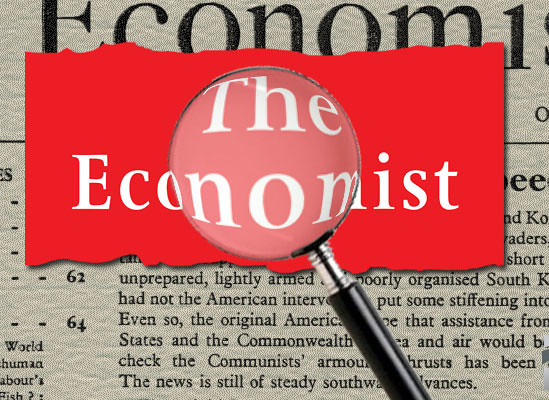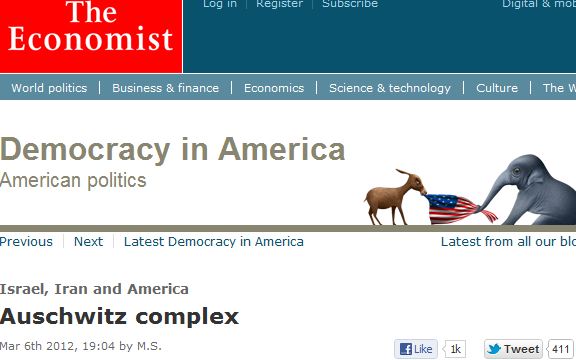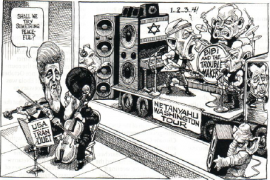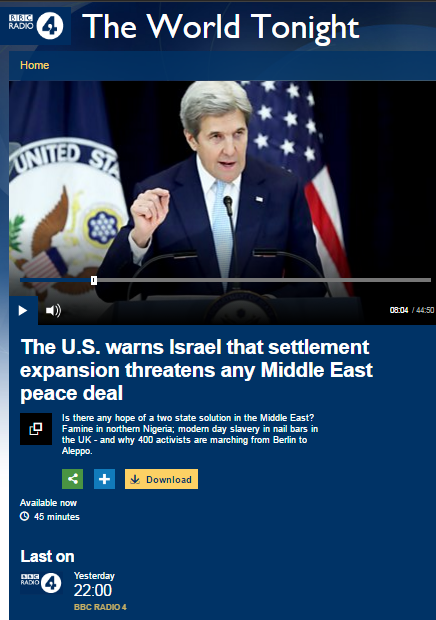A Nov. 10th Economist article is titled “A Netanyahu government may raise the temperature in a boiling West Bank“, but isn’t really about the returning prime minister, and it misleads in the opening paragraph:
A week before Israelis went to the polls on November 1st, a team of Israeli soldiers carried out an unusual raid in the old city of Nablus. By day its casbah is a lively place, famed for its sweets. But in the pre-dawn hours of October 25th it was a war zone. Five Palestinians were killed and dozens injured.
The Economist writer fails to explain that all five of the Palestinians killed during that raid were terrorists.

The piece continues:
The West Bank is boiling. The United Nations says that this year is likely to be the deadliest for Palestinians there since 2005
It’s also been an especially deadly year for Israelis, with twenty-six people murdered by Palestinian terrorists so far in 2022 – the highest annual number killed since 2015.
The piece continues:
In the first ten months of this year at least 109 Palestinians, including 28 children, have been killed by Israeli soldiers in the West Bank, a 40% increase on the tally for the whole of 2021.
Violence by Jewish settlers against Palestinians in the West Bank, much of it unpunished, has been rising too.
First, most of those 109 Palestinians killed were terrorists, or were otherwise engaged in violence at the time of their deaths.
Further, as we’ve demonstrated previously, most of the Palestinians killed who were 18 or younger – characterised as “children” – were involved in violent activity at the time of their deaths, and a significant proportion were claimed by terrorist organisations as members. Evidently, the Palestinian exploitation of minors for the purposes of terrorism is not a relevant issue for the Economist journalist.
The Economist continues:
Violence by Jewish settlers against Palestinians in the West Bank, much of it unpunished, has been rising too. The UN has recorded 577 attacks this year, up from 496 in 2021.
The Economist omits the increased Palestinian attacks against Israeli civilians.
According to UN Special Coordinator for the Middle East Peace Process Tor Wennesland, during October “two Israeli security forces personnel were killed, and 25 Israeli civilians, including five women and three children, and 13 Israeli security forces personnel were injured by Palestinians in shooting and ramming attacks, clashes, the throwing of stones and Molotov cocktails, and other incidents.”
He added that “in total, Palestinians perpetrated some 115 attacks against Israeli civilians [in October], 100 of which were stone-throwing incidents, resulting in injuries and/or damage to Israeli property.”
The Economist article continues:
Yair Lapid, the outgoing prime minister, was hardly a dove. Though he endorsed the two-state solution at the UN General Assembly in September, he made no effort to end the conflict during his four months in office.
What precisely Yair Lapid could have done during his four months on the job to achieve a two-state solution is unclear, especially considering Palestinian political and religious leaders not only show no interest in peace, but continue to promote incitement, glorify terror and reject Israel’s very right to exist.
The article continues:
During his previous 12-year stint as prime minister, Mr Netanyahu undermined the PA. He periodically withheld the tax revenues that Israel collects on its behalf, starving the authority of funds. He had no interest in peace negotiations;
Readers aren’t told that the occasional, and temporary, withholding of tax revenue was a response to the PA’s insistence on continuing its payment of salaries to terrorists and their families – a practice which incentivises terror and is inimical to peace. Further, contrary to the assertion that his government had “no interest in peace negotiations”, in 2013-14, Israel and the PA engaged in serious (US sponsored) peace talks.
Finally, there’s this bizarre assertion:
Israel has imposed a blockade on Gaza, the other bit of a would-be Palestinian state, since 2007, when Hamas, a militant Islamist group, took control. Egypt, which borders Gaza, also keeps tight restrictions on it. Many Israeli security officials argue it is time to rethink the embargo, which has not dislodged Hamas from power but has brought misery to Gaza’s 2m people.
Our research was unable to find even one “Israeli security official” who has argued that it’s time to end the partial blockade of Gaza designed to prevent the import of deadly weapons into the strip by antisemitic terror groups – such as Hamas and Palestinian Islamic Jihad – committed to the Jewish state’s annihilation. The “misery” brought to Palestinians in Gaza is the result of Hamas’s malign obsession with Israel, and their decision to divert limited resources to guns, rockets, and terror tunnels instead of education, healthcare and other pressing social needs.
The egregious omissions, distortions and errors in the article suggest that the journalist who wrote it set out to advocate on behalf of the Palestinians. Of course, you can be an activist. Or, you can be a journalist. But, you can’t be both.






The Economists should stick to numbers as obviously their grasp of facts is woefully lacking. #journalismisdead